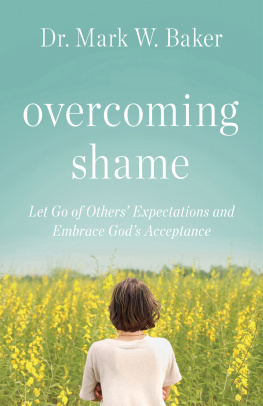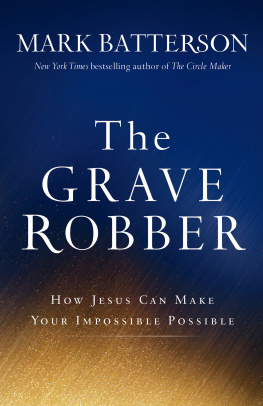I want to thank a number of people for helping bring this book into being. First, I must thank my wife, Barbara, and my three children, Brendan, Aidan, and Brianna, for their sacrifices in birthing this book with me. Thanks to Don and Simone Morgan for stepping in when we needed them as only good friends can. I am grateful to all of my patients, both past and present, who have taught me so much about people. I am indebted to Dr. Robert Stolorow and Dr. Howard Bacal, who taught me how to think about therapy. I am thankful for my friends and colleagues at the La Vie Counseling Center who contributed to the ideas here. And my deep appreciation goes to Julie Castiglia of the Castiglia Literary Agency and Gideon Weil of Harper San Francisco for having the vision to grasp this book as an idea and help transform it into the source of help that it is today. I am grateful that this book has been published in several countries around the world, but I especially want to acknowledge the wisdom of Marcos and Tomas da Veiga Pereira, of Sextante in Rio de Janeiro, who had the foresight to publish this book in Brazil, where it became one of the top ten best-selling books for two years.
Jesus understood people. We know this because he is the most influential person in all of history. Entire cultures have been shaped, and countless individual lives transformed, as a result of his three-year itinerant ministry two thousand years ago. As a psychologist, I am fascinated with the question of why his teachings were so powerful. After years of study, I have found that a psychological understanding of the teachings of Jesus helps us see why his words had such an impact upon his followers. Using our best psychological theories today, I believe we can see how Jesuss psychologically brilliant grasp of people made them want to listen to him.
For over twenty years I have been interested in the study of both theology and psychology. I have found each discipline to deepen my understanding of the other. I have never ceased to be amazed at the points of agreement between spiritual and emotional principles that facilitate health.
Freud, however, considered religion a crutch people use to deal with their feelings of helplessness. This started a war between psychology and religion that continues to this day. Some psychologists view religion as a cult that limits human potential, and some religious people view psychology as a cult for the very same reason. I have found the animosity that exists on both sides of this conflict to be rooted in fear. Fear inhibits understanding. It is only when people stop being threatened long enough to listen to each other that they can begin to truly comprehend one another.
Years ago I was asked by a colleague to take a speaking engagement that he was unable to keep the next Sunday at a church. Although I didnt know anything about the church, I agreed to give one of my talks on a psychologically relevant subject geared to a religious audience. Several minutes into my lecture a man in the back of the room raised his hand and said, This might be an interesting seminar for a Tuesday night at the library or something, but it doesnt belong in the House of God on the Lords Day! Needless to say, it was a tough room. Unfortunately, this was neither the first nor the last time that I have encountered such a hostile attitude toward secular psychology by certain religious people.
But both sides of the conflict support this antipathy. Once, after a series of difficult conversations with a group of psychoanalysts on the subject of Christianity, I discussed my disappointment over what appeared to be their prejudice toward religious people with another psychoanalyst friend of mine. His insight was: I am familiar with those men, and I dont think they know personally any therapist who is both intelligent and Christian. Those psychoanalysts were just as guilty of holding prejudices against religious people they had excluded from their professional lives as the religious people who wouldnt allow psychology into their religious lives.
Fortunately Freud did not have the final say on either religion or psychology. Contemporary psychologists are reevaluating many of Freuds ideas, and its time to include his prejudice against religion in that process. For several years, I have been very excited about the advancements in the field of psychology. The points of agreement between contemporary theories and the ancient teachings of Jesus have astonished me.
Jesus taught through the subjective style of telling parables; we now have psychoanalytic theories of intersubjectivity to explain why. Jesus believed relationship with God was the source of salvation; the relational schools of psychoanalysis clarify why this makes psychological sense. Jesus did not see himself as existing apart from Someone outside of himself; psychological theories are saying similar things about the existence of the self. Jesus welcomed childlike feelings; psychological theories of affect explain why. Jesus understood how the mind could be divided against itself; we now understand how the unconscious can battle with the conscious. Jesus saw sin as broken relationship with God; psychopathology results from ruptures in relationships according to contemporary theories. What Jesus called idolatry psychologists call addiction. Jesus taught that we must know and be known by God; therapy heals through empathy. Jesus explained righteousness through a vertical relationship with God; psychologists explain mental health through horizontal relationships between people. And this is just a beginning.
Many books have already been written on the teachings of Jesus. Most of us are familiar with the traditional interpretations of what he had to say, but I would like to say some things that are new about his sayings, which are quite old. My study of contemporary psychoanalytic theories has allowed me to understand the teachings of Jesus in a different light that has enriched my life and the lives of my patients. Rather than finding the teachings of Jesus contradicted by these new psychological developments, I have found them illuminated as profound psychological insights that I had not understood before. Let us take a fresh look at some well-known sayings to learn something new about the wisdom of Jesus in light of contemporary psychological thought.
Each of the following chapters centers on a psychoanalytic concept that I will be illustrating with the teachings of Jesus. I have given references in footnotes for those who wish to read technical psychoanalytic writings about them. I have endeavored to spell out these complicated concepts in simple terms without sacrificing the integrity of their meaning. My goal was to avoid sacrificing either simplicity or integrity, even though at moments this seemed impossible to do.
I believe a number of spiritual principles in the teachings of Jesus can benefit us in our attempts to live psychologically healthy lives. I will be giving examples of how these spiritual principles apply to the lives of people today. The examples I use have been taken from the lives of people I have worked with, known, or read about. For reasons of confidentiality, each example is actually a composite of several people and does not represent any one individual. Unless otherwise noted, I quote Jesus from the New International Version of the Bible. Regardless of the personal religious or psychological beliefs we might hold, we can all benefit from timeless wisdom.











